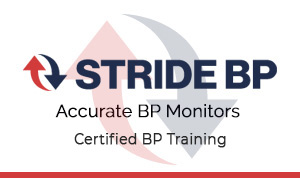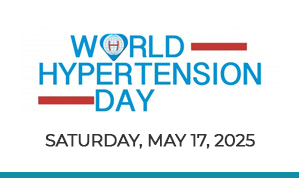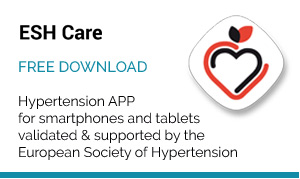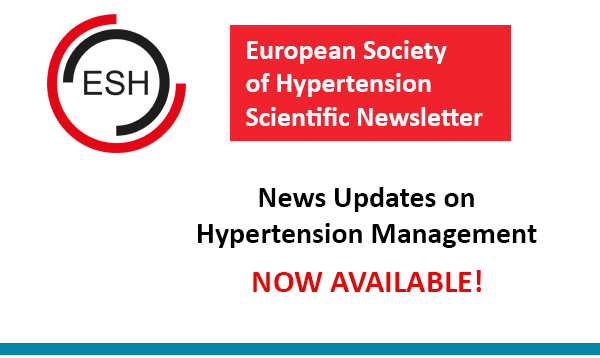21st European Meeting on Hypertension and Cardiovascular Prevention
Chronic kidney disease (CKD) is common in patients with arterial hypertension, atherosclerosis, and other forms of cardiovascular disease (CVD). In the Lennart Hansson Memorial Lecture, Luis M. Ruilope, MD, Universidad Autonoma, Madrid, Spain, described recent evidence supporting the rationale for providingn simultaneous renal and cardiovascular (CV) protection in patients with hypertension.
The presence of CKD in patients with established CVD further increases the risk of major adverse CV events, including death. In the Justification for the Use of Statins in Prevention-an Intervention Trial Evaluating Rosuvastatin (JUPITER), patients with baseline eGFR <60 ml/min/1.73 m2 had higher vascular event rates than patients with normal eGFR levels (HR, 1.54; 95% CI, 1.23 to 1.92; p=0.0002) [Ridker PM. J Am Coll Cardiol2010]. Even in patients without established CVD, renal impairment increases the risk of CV death. According to a recent international meta-analysis from the Kidney Disease: Improving Global Outcomes (KDIGO) Chronic Kidney Disease Prognosis Consortium, estimated glomerular filtration rate (eGFR) and protein-to-creatinine ratio independently predicted all-cause and CV mortality in the general population [Chronic Kidney Disease Prognosis Consortium. Lancet 2010].
The direct association between blood pressure and renal function is further illustrated in large hypertension trials. In the Avoiding Cardiovascular Events through Combination Therapy in Patients Living with Systolic Hypertension (ACCOMPLISH) trial, intensive blood pressure control with fixed-dose benazepril plus amlodipine decreased the risk of CKD progression by 48% compared with standard blood pressure treatment with benazepril plus hydrochlorothiazide (HR, 0.52; 95% CI, 0.41 to 0.65; p<0.0001) [Bakris GL. Lancet 2010]. Mean blood pressure levels were similar in both treatment groups throughout the trial, suggesting that renal protection was achieved by mechanisms other than enhanced blood pressure control. In ACCOMPLISH, preventing cardiorenal damage required treatment with a renin-angiotensin-aldosterone-system (RAAS) inhibitor.
Findings from the African-American Study of Kidney Disease and Hypertension (AASK) study highlight the complexity of the interaction between blood pressure control and the progression of CKD [Appel LJ. N Engl J Med 2010]. In AASK, intensive blood pressure management did not reduce the risk of progression of CKD compared with standard blood pressure treatment across the overall study cohort of patients with hypertensive CKD (HR, 0.91; p=0.27). However, the effects of blood pressure control differed according to the baseline level of proteinuria (p=0.02 for interaction). Patients with a baseline protein-to-creatinine ratio of >0.22 had a decreased risk of CKD progression with intensive versus standard blood pressure control (HR, 0.73; 95% CI, 0.58 to 0.93; p=0.01).
Modifiable risk factors such as hypertension, dyslipidemia, diabetes, and smoking are major contributors to both CKD and CV events. In addition to standard lifestyle modifications designed to control these risk factors, the use of antihypertensive therapies that provide simultaneous renal and CV protection is critical for improving outcomes among patients with hypertension and CKD.
Further Reading:
Appel LJ, Wright JT Jr, Greene T, et al; AASK Collaborative Research Group. Intensive blood-pressure control in hypertensive chronic kidney disease. N Engl J Med. 2010;363:918-929.
Bakris GL, Sarafidis PA, Weir MR, et al. Renal outcomes with different fixed-dose combination therapies in patients with hypertension at high risk for cardiovascular events (ACCOMPLISH): a prespecified secondary analysis of a randomised controlled trial. Lancet 2010;375:1173-1181.
Chronic Kidney Disease Prognosis Consortium. Association of estimated glomerular filtration rate and albuminuria with all-cause and cardiovascular mortality in general population cohorts: a collaborative meta-analysis. Lancet 2010;375:2073-2081.
Ridker PM, MacFadyen J, Cressman M, Glynn RJ. Efficacy of rosuvastatin among men and women with moderate chronic kidney disease and elevated high-sensitivity C-reactive protein. J Am Coll Cardiol. 2010 ;55(12):1266-1273.





